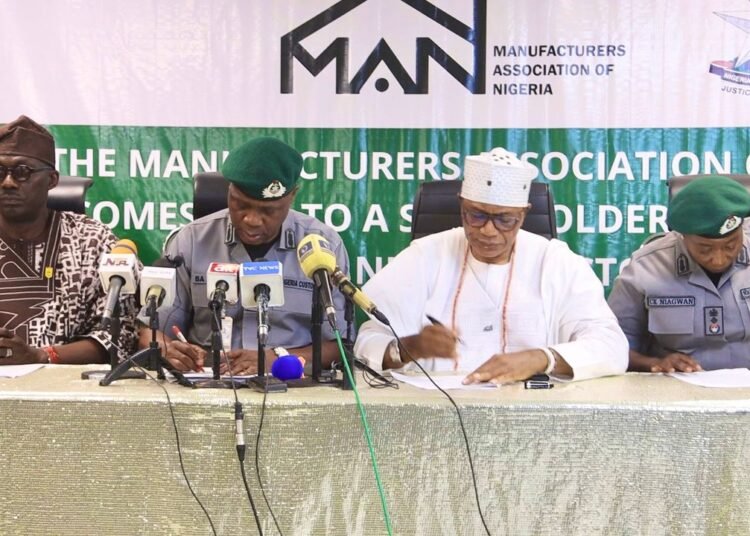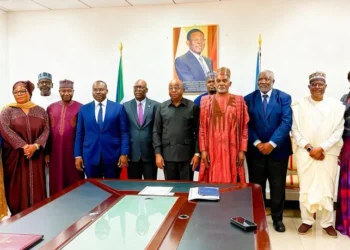The Nigeria Customs Service (NCS) and the Manufacturers Association of Nigeria (MAN) have taken a decisive step toward a new era of cooperation, following a high-level consultation in Lagos on Friday, September 26, 2025. The over six-hour engagement focused on strengthening collaboration to drive industrial growth, enhance trade facilitation, and boost Nigeria’s economic competitiveness.
The meeting culminated in a joint communiqué signed by Comptroller-General of Customs (CGC) Adewale Adeniyi and MAN President Francis Meshioye, which both parties described as a “turning point” in their relationship.
Speaking during the engagement, CGC Adeniyi reaffirmed the Service’s commitment to balancing its crucial revenue mandate with reforms that support business growth, noting that the manufacturing sector remains “central to Nigeria’s industrialization and job creation.”
A major outcome of the dialogue was the announcement of strategic exemptions from the 4% FOB levy, approved by the Minister of Finance and Coordinating Minister of the Economy, Wale Edun. The exemptions, which cover raw materials, machinery, and spare parts imported by manufacturers under Chapters 98 and 99 of the ECOWAS Common External Tariff, are designed to reduce costs and improve the competitiveness of Nigerian manufacturers. Other categories include government projects with Import Duty Exemption Certificates, humanitarian and life-saving goods, healthcare-related imports under the Presidential Initiative for Unlocking the Healthcare Value Chain, and spare parts for commercial airlines.
Adeniyi explained that manufacturers not yet onboarded under Chapters 98 and 99 would be expedited into the framework, while levy payments already made would be credited for future transactions. He also addressed broader operational challenges raised by manufacturers, including multiple checkpoints, excessive alerts in the clearance system, and technical hitches with digital trade platforms.
He announced plans to introduce a “One-Stop-Shop” trade platform to simplify regulatory processes, reduce bureaucracy, and significantly shorten clearance times, in addition to streamlining highway checkpoints to eliminate unnecessary delays. “Our reforms are anchored on a vision for long-term economic transformation, with a commitment to predictability, transparency, and efficiency,” Adeniyi said.
Deputy Comptroller-General in charge of Tariff and Trade, Caroline Niagwan, underscored the Service’s ongoing trade facilitation measures, highlighting the Authorized Economic Operator (AEO) scheme, the Advance Ruling system, Time Release Studies, and technology-driven solutions aimed at reducing clearance times and cutting costs for legitimate businesses.
On his part, MAN President Francis Meshioye commended the “new spirit of partnership and openness” under the current Customs leadership, stressing that the reforms “will ease our operations, enhance competitiveness, and ultimately contribute to Nigeria’s economic growth.” He pledged that manufacturers would complement Customs’ efforts by promoting compliance among their members.
Both NCS and MAN resolved to establish a formal tripartite consultation mechanism involving MAN, Customs, and the Ministry of Finance for structured, periodic reviews of policies and their impact. The Service also agreed to develop clear guidelines for MAN members seeking admission into the Authorized Economic Operator scheme.






























































